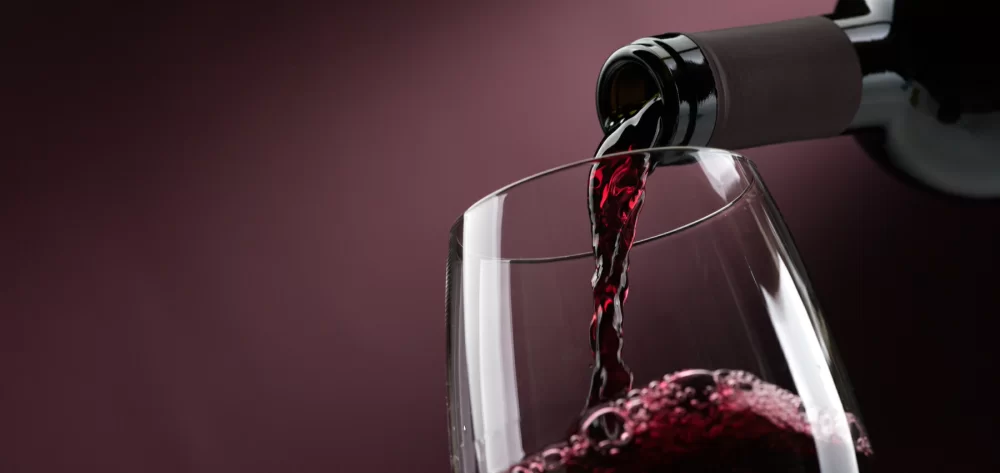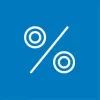As well as being popular among consumers and connoisseurs, wine can also be interesting from an investment perspective. In this guide, moneyland.ch explains what you should pay attention to when considering wine as an investment.
How high are the possible returns?
Expensive, world-renowned wines have considerable investment potential. According to the Knight Frank Fine Wine Icons Index, the value of premium wines grew by 149 percent between 2013 and 2023 – an average of 9.55 percent per year. Growth was even stronger for fine wines from Burgundy (France), at 214 percent (12.12 percent per annum, on average). The Liv-ex indexes, which track the prices of wine traded on The London International Vintners Exchange, have also shown strong historical growth over long terms.
Additionally, the price of fine wine has not been strongly affected by economic fluctuations in the past. That means that wine can potentially be a crisis-resistant investment, although there is no guarantee that future developments will follow past trends. In every case, patience is essential because wine is primarily suitable for longer-term investments.
What are the risks of investing in wine?
The potential returns are impressive. But that should not distract you from the risks involved in wine trading. There is no guarantee that your wine will gain value. Wine should never be a major component of your investment portfolio, but only be used to complement your other investments. Additionally, you should only invest in wine if you understand the wine business well. It also helps if you are a wine enthusiast yourself, and enjoy collecting wine and tracking the wine market. In that case, you can still enjoy your wines yourself in the worst-case scenario that you are unable to find buyers.
Which wines should I invest in?
Buying the right wine at the right time requires expert knowledge of wine, an understanding of the wine business, and some luck. These requirements, along with the large amounts of capital needed, mean that wine investments are generally less accessible to smaller investors than other investment vehicles like exchange-traded funds (ETFs). Consulting an expert in the field before you invest any serious money can be beneficial. You can also find valuable tips on online forums, and in specialized magazines like The Wine Advocate.
Whether a wine is investment-grade or not depends on many different criteria. These include the quality of the wine, the quantities in which the wine is produced, and the wine’s capacity for aging. Many top wines only reach their optimal maturity many years after they are bottled. It is of crucial important that the history of each wine bottle is fully documented.
The Parker point system is widely used to rate the quality of wine. This rating system was first developed by renowned American wine expert Robert Parker. The highest possible rating is 100 points. A rating of 80 points or more indicates that a wine is above average to very good. Wines with 90 to 95 Parker points are outstanding, while those with 96 points or higher are extraordinary.
Which wines have a proven track record among collectors?
The classification of Bordeaux harvests published by Napoleon III in 1855 can serve as a reference. Bordeaux wines from the highest-rated cellars (Premiers Crus) are particularly valuable. Wines from these cellars are particularly sought after by collectors:
- Château Lafite-Rothschild
- Château Latour
- Château Margaux
- Château Mouton-Rothschild
- Château Haut-Brion.
A similar classification system is used for wines from the Burgundy region of France. The difference is that in the Burgundy classification system, Premiers Crus is the second-best rating, with the highest rating being Grand Crus. In the Burgundy system, classifications are based on locations rather than individual wine cellars.
Where can I buy investment wines?
If you want to invest in actual bottles of wine, then auction houses like Sotheby’s and Christie’s are a good first stop. There are also auction houses that specialize in wine, such as Winebid and Zachys. Tracking the prices at which different wines are sold at auctions can help to build your understanding of current price developments.
In some cases, it is also possible to find investment-grade wines at wine merchants, or to buy them directly from wine producers.
How should I store wine correctly?
Once you have found a suitable wine to invest in, you should pay careful attention to storing it properly. Without proper storage, the chances of your wine gaining value are practically null. As a general rule, the storage site should meet these criteria:
- Temperature: Wine typically has an ideal storage temperature of between 10 and 14 degrees. Some wines may have special temperature requirements. But regardless of which wines you have, the temperature in your storage should never exceed 20 degrees Celsius, and should not fluctuate.
- Light: Wine is sensitive to light, and especially to direct sunlight. For this reason, wine should be stored in a dark place.
- Humidity: Ideally, your storage should have constant air humidity of 75 percent.
- Position: Wine bottles should be stored lying down on their sides.
A cellar generally provides suitable conditions for storing wine. If you do not have access to a suitable storage room, then you could consider getting a climate-controlled wine closet. These closets cost a minimum of several hundred francs, and consume electricity. The resulting costs detract from your potential returns. There are also service providers that offer proper storage in specialized wine cellars. Make sure to account for the storage fees charged when considering these storage services.
How should I insure my wine?
Even if you store your wine correctly, there is always a chance of some hazard damaging your investment. If expensive bottles of wine are stolen, for example, you may quite literally be left high and dry. Household insurance generally covers wine along with your other personal property. But if the value of your wine collection together with your other household goods exceeds the sum insured, then only part of your collection will be insured. Make sure to have the insurance company adjust the sum insured in keeping with the value of your assets. For particularly valuable collections, it can be worth getting specialized valuables insurance for wine collections. Note that while you can insure the cost of replacing a wine bottle, insurance does not cover the possible sentimental or collectible value.
Are there other ways to invest in wine?
- Subscriptions: Wine subscriptions let you invest in wine that is still in its maturing process. In other words, you buy wine on the primary market. However, there is no guarantee that you will be able to resell the wine at a profit. Wine subscriptions are offered by a number of online wine merchants, including Swiss dealers like Coop and Mövenpick.
- Stocks of wine companies: The stock market provides an alternative to investing in physical wine. You can buy shares in companies that participate in the production and marketing of wine. Examples include Constellation Brands, Inc. and The Duckhorn Portfolio (United States), and LVMH Moët Hennessy – Louis Vuitton SE (France). In order to buy shares in these companies, you have to have a stock brokerage account. You can compare brokerage accounts from Swiss banks using the moneyland.ch online trading comparison.
- ETFs: Currently, there are no ETFs that specialize in wine. However, there are ETFs that invest in companies that are active in the wine sector, among other stocks. Examples include the Vanguard Consumer Staples ETF (ISIN: US92204A2078) and the AdvisorShares Vice ETF (ISIN: US00768Y5454). The advantages of using ETFs are that they have relatively low costs, and your investment is spread out across many different companies instead of just a few individual stocks. You can buy shares in ETFs using a stock brokerage account.
- Actively-managed mutual funds: There are some actively managed mutual funds that invest only in wine. However, these funds often have high fees and high minimum investment requirements. In the past, a number of wine funds have been criticized for lack of transparency with regards to their investment and valuation processes.
- Participation certificates: Many wine cellars issue participation certificates that let you invest directly in their business. These certificates are similar to bonds: You lend the wine cellar money for a fixed investment term, and the wine cellar pays you interest on the loan at regular intervals. But what make wine certificates unique is that many cellars pay interest in kind in the form of wine or vouchers rather than in fiat money. You can also invest in wine cellars – particularly smaller or newer wine cellars – via crowdfunding platforms, and receive dividends in kind.
- Wine investment services: There are a number of specialized service providers that offer wine investments as a service. Examples include Vinovest and Vint in the United States, and Cult Wine Investing and London Barrelhouse in the United Kingdom. Many of these let you manage your investments completely online, with the wine you invest in being stored in specialized wine storages. But these platforms should be used with caution. The fees are often relatively high, and there is potential for conflicts of interest.
More on this topic:
How to invest money in Switzerland
How to invest in whisky
Compare Swiss stock brokerage accounts now

 Deal of the Day
Deal of the Day 












